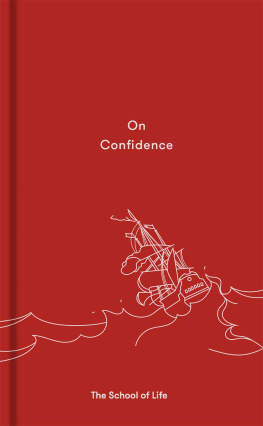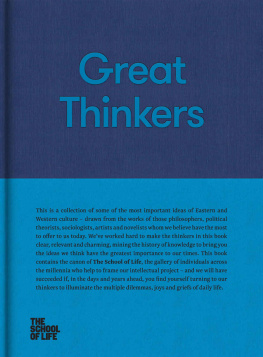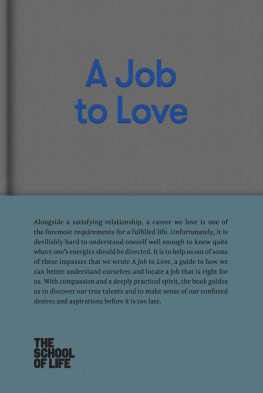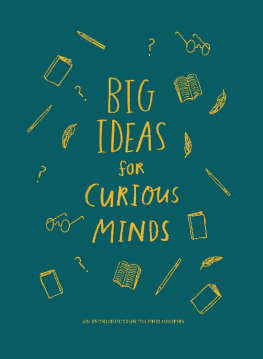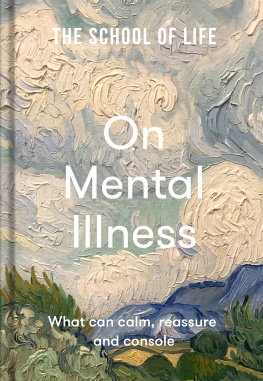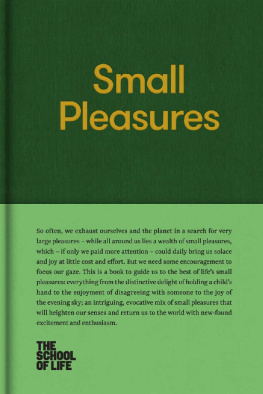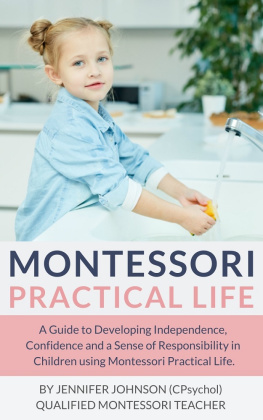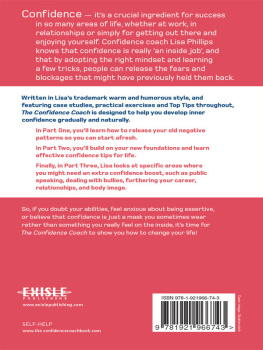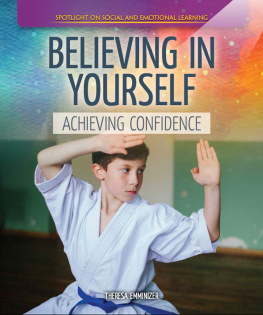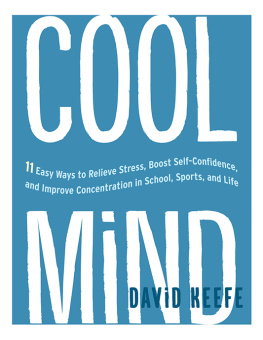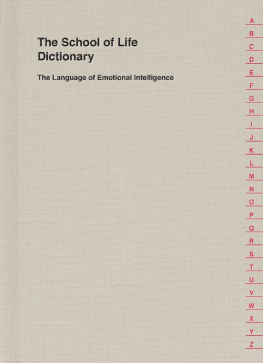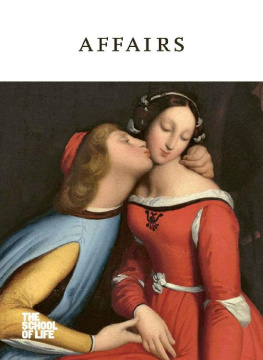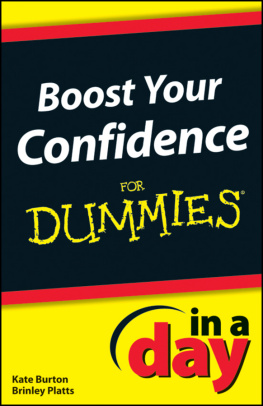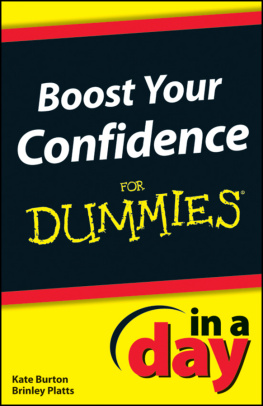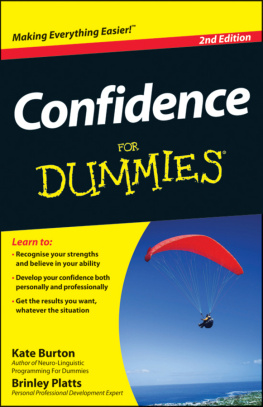The School Of Life - On Confidence
Here you can read online The School Of Life - On Confidence full text of the book (entire story) in english for free. Download pdf and epub, get meaning, cover and reviews about this ebook. year: 2018, publisher: School of Life Press, genre: Politics. Description of the work, (preface) as well as reviews are available. Best literature library LitArk.com created for fans of good reading and offers a wide selection of genres:
Romance novel
Science fiction
Adventure
Detective
Science
History
Home and family
Prose
Art
Politics
Computer
Non-fiction
Religion
Business
Children
Humor
Choose a favorite category and find really read worthwhile books. Enjoy immersion in the world of imagination, feel the emotions of the characters or learn something new for yourself, make an fascinating discovery.
- Book:On Confidence
- Author:
- Publisher:School of Life Press
- Genre:
- Year:2018
- Rating:3 / 5
- Favourites:Add to favourites
- Your mark:
- 60
- 1
- 2
- 3
- 4
- 5
On Confidence: summary, description and annotation
We offer to read an annotation, description, summary or preface (depends on what the author of the book "On Confidence" wrote himself). If you haven't found the necessary information about the book — write in the comments, we will try to find it.
On Confidence — read online for free the complete book (whole text) full work
Below is the text of the book, divided by pages. System saving the place of the last page read, allows you to conveniently read the book "On Confidence" online for free, without having to search again every time where you left off. Put a bookmark, and you can go to the page where you finished reading at any time.
Font size:
Interval:
Bookmark:
On
Confidence
Other books in this series:
Why You Will Marry the Wrong Person
Why We Hate Cheap Things
How to Find Love
Self-Knowledge
The Sorrows of Work
The Sorrows of Love
On
Confidence
The School of Life
Published in 2017 by The School of Life
70 Marchmont Street, London WC1N 1AB
Copyright The School of Life 2017
Designed and typeset by Marcia Mihotich
Printed in Latvia by Livonia Print
All rights reserved. This book is sold subject to the condition that it shall not be resold, lent, hired out or otherwise circulated without express prior consent of the publisher.
A proportion of this book has appeared online at
thebookoflife.org
Every effort has been made to contact the copyright holders of the material reproduced in this book. If any have been inadvertently overlooked, the publisher will be pleased to make restitution at the earliest opportunity.
The School of Life offers programmes, publications and services to assist modern individuals in their quest to live more engaged and meaningful lives. Weve also developed a collection of content-rich, design-led retail products to promote useful insights and ideas from culture.
www.theschooloflife.com
ISBN 978-1-9997471-0-7
Contents
Introduction
It can be humbling to realise just how many great achievements have not been the result of superior talent or technical know-how, merely that strange buoyancy of the soul we call confidence.
We spend vast amounts of time acquiring confidence in narrow technical fields: quadratic equations or bioengineering; economics or pole vaulting. But we overlook the primordial need to acquire a more free-ranging variety of confidence one that can serve us across a range of tasks: speaking to strangers at parties, asking someone to marry us, suggesting a fellow passenger turn down their music, changing the world.
We so often lack confidence because we implicitly regard its possession as a matter of slightly freakish and irreplicable good luck. Some people simply are very confident, for reasons that neuroscientists may one day uncover. But, we tell ourselves, there isnt much we can do about our particular situation. We are stuck with the confidence levels we were born with.
In fact, the opposite is true. Confidence is a skill, not a gift from the gods. And it is a skill founded on a set of ideas about the world and our natural place within it.
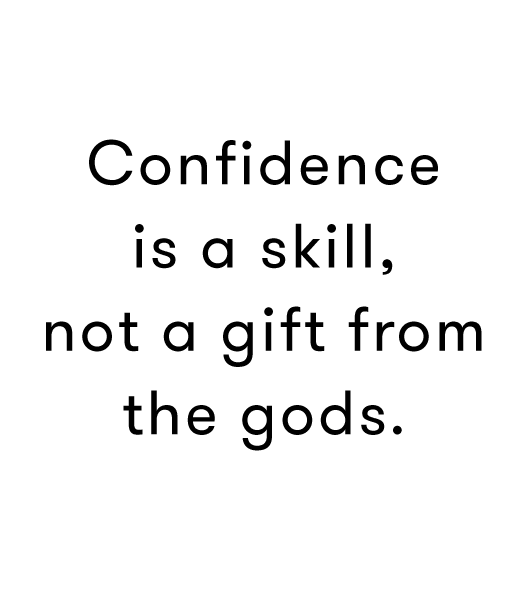
These ideas can be systematically studied and gradually learnt, so that the roots of excessive hesitancy and compliance can be overcome. We can school ourselves in the art of confidence.
Idiocy and
Confidence
In well-meaning attempts to boost our confidence ahead of challenging moments, people often try to draw our attention to our strengths: our intelligence, our competence, our experience. However, this can have awkward consequences. There is a type of underconfidence that arises specifically when we grow too attached to our own dignity and become anxious around any situation that might seem to threaten it. We hold back from challenges in which there is any risk of ending up looking ridiculous which comprises, of course, almost all the most interesting situations.
In a foreign city, we grow reluctant to ask anyone to guide us to the nice bars, because they might think us an ignorant, pitiable lost tourist. We might long to kiss someone, but never let on, in case they dismiss us as a predatory loser. At work, we dont apply for a promotion, in case the senior management deems us delusionally arrogant. In a concerted bid never to look foolish, we dont venture very far from our cocoon. Consequently from time to time, at least we miss out on the best opportunities of our lives.
At the heart of our underconfidence is a skewed picture of how dignified a normal person can be. We imagine that it might be possible, after a certain age, to place ourselves beyond mockery. We trust that it is an option to lead a good life without regularly making a complete idiot of ourselves.
One of the most charming books written in early modern Europe was In Praise of Folly (1509), by the Dutch scholar and philosopher Erasmus. In its pages, Erasmus advances a hugely liberating argument. In a warm tone, he reminds us that everyone, however important and learned they might seem, is a fool. No one is spared, not even the author. However well-schooled he himself was, Erasmus remained he insists as much of a nitwit as anyone else: his judgement is faulty; his passions get the better of him; he is prey to superstition and irrational fear; he is shy whenever he has to meet new people; he drops things at elegant dinners. This is deeply cheering, for it means that our own repeated idiocies do not have to exclude us from the best company. Looking like a prick, making blunders, and doing bizarre things in the night does not render us unfit for society; it makes us a little more like the greatest scholar of the northern European Renaissance.
There is a similarly uplifting message to be drawn from the work of Pieter Bruegel. His painting Dutch Proverbs presents a comically disenchanted view of human nature. Everyone, he suggests, is pretty much deranged: heres a man throwing his money into the river; theres a soldier squatting on the fire and burning his trousers; someone is intently bashing his head against a brick wall, someone else is biting a pillar. Importantly, the painting is not an attack on just a few unusually awful people: it is a picture of parts of all of us.
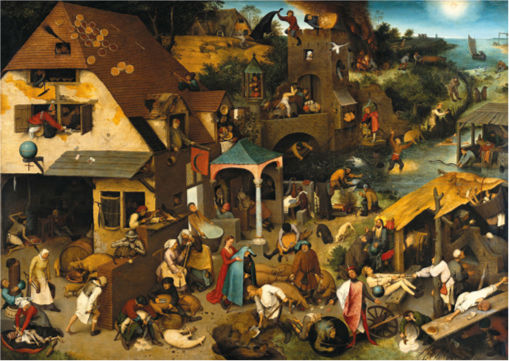
Pieter Bruegel the Elder, Nederlandse Spreekwoorden (Dutch Proverbs), 1559.
Bruegel and Erasmuss work proposes that the way to greater confidence is not to reassure ourselves of our own dignity; its to come to peace with our inevitable ridiculousness. We are idiots now, we have been idiots in the past, and we will be idiots again in the future and thats OK. There arent any other available options for human beings.
We grow timid when we allow ourselves to be overexposed to the respectable sides of others. Such are the pains people take to appear normal, we collectively create a phantasm that suggests that normality might be possible, and this is problematic for everyone.
Once we learn to see ourselves as already, and by nature, foolish, it wont matter so much if we do one more thing that might look stupid. The person we try to kiss could indeed think us ridiculous. The individual from whom we asked directions in a foreign city might regard us with contempt. But if these people did so, it wouldnt be news to us. They would only be confirming what we had already gracefully accepted long ago: that we, like them and every other person on the earth are a nitwit. The risk of trying and failing would have its sting substantially removed. The fear of humiliation would no longer stalk us in the shadows of our minds. We would grow free to try things by accepting that failure was the norm. And every so often, amid the many rebuffs we would have factored in from the outset, it would work: wed get a kiss, wed make a friend, wed get a raise.
The road to greater confidence begins with a ritual of telling oneself solemnly every morning, before heading out for the day, that one is a muttonhead, a cretin, a dumbbell and an imbecile. A few more acts of folly should, thereafter, not matter very much.
Impostor
Syndrome
Faced with challenges, we often leave the possibility of success to others, because we dont seem to ourselves to be the sort of people who win. When we approach the idea of acquiring responsibility or prestige, we quickly become convinced that we are impostors, like an actor in the role of a pilot, wearing the uniform and making sunny cabin announcements while incapable of even starting the engines.
Next pageFont size:
Interval:
Bookmark:
Similar books «On Confidence»
Look at similar books to On Confidence. We have selected literature similar in name and meaning in the hope of providing readers with more options to find new, interesting, not yet read works.
Discussion, reviews of the book On Confidence and just readers' own opinions. Leave your comments, write what you think about the work, its meaning or the main characters. Specify what exactly you liked and what you didn't like, and why you think so.

